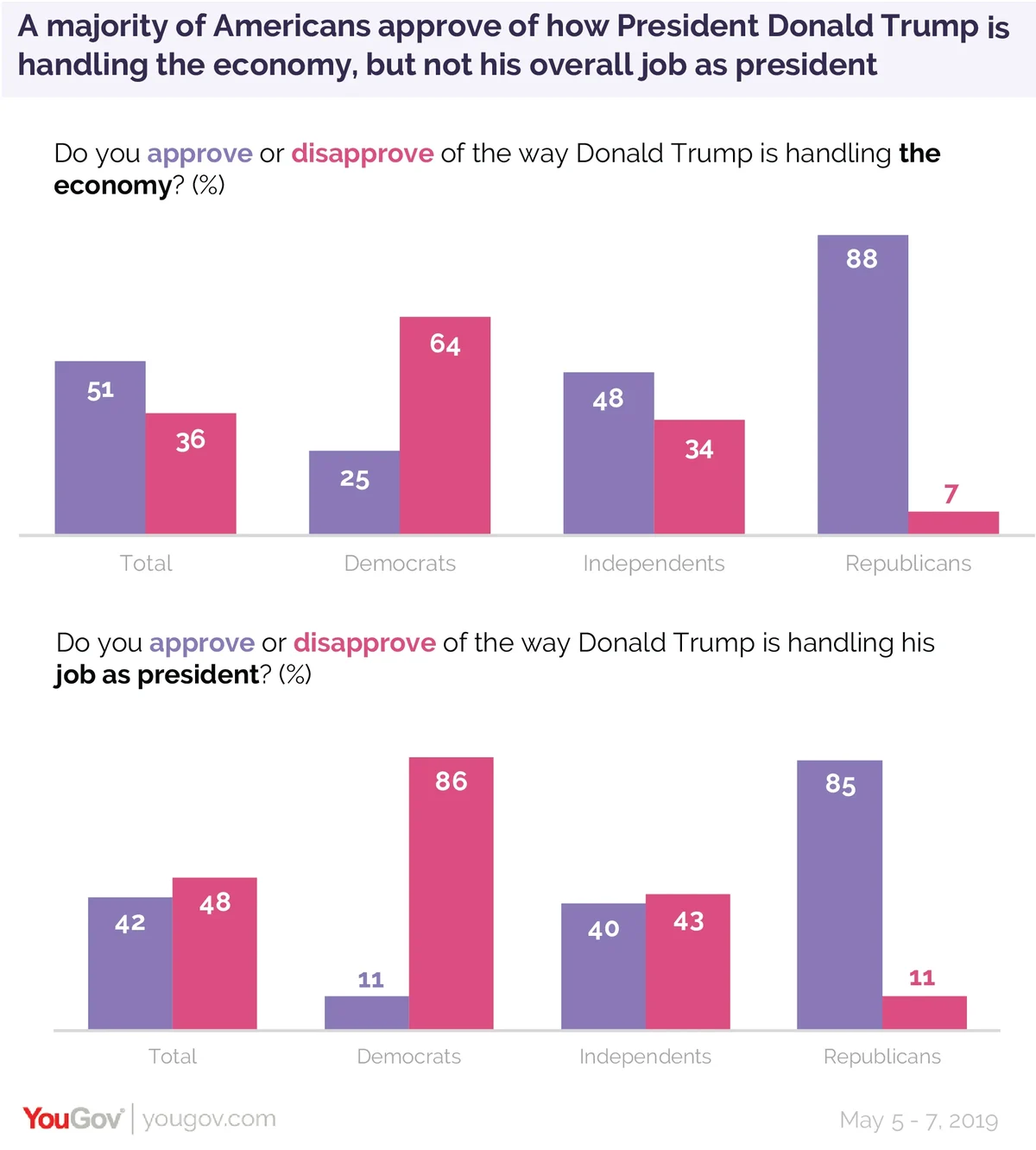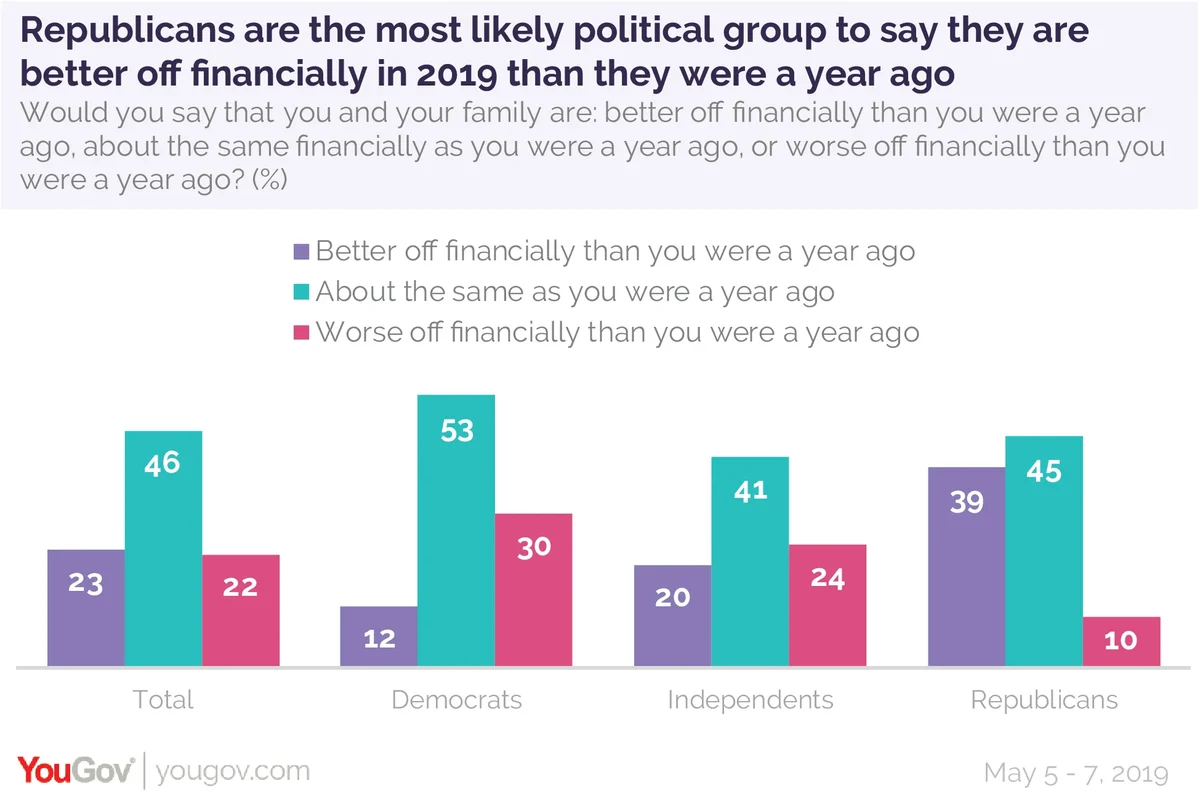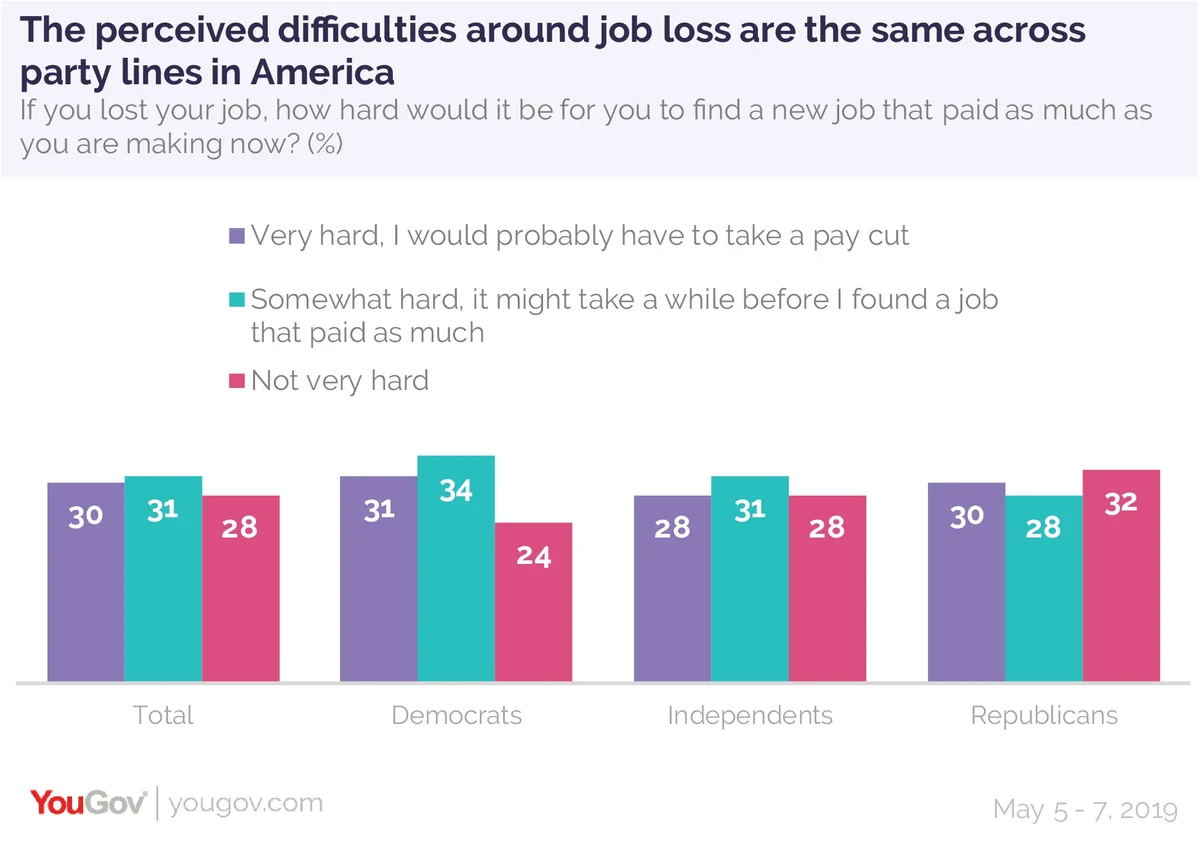A slight majority of Americans (51%) approves of how President Donald Trump is handling the economy
For nearly all of his time in office, more Americans have disapproved than approved of how President Donald Trump handles the job. But there is one area where the public sees him as successful: the economy. In the latest Economist/YouGov Poll, more than half the public approves of the way he is handling the economy, the only issue for which this is the case.

Approval of the President’s handling of the economy is nine points higher than his overall approval, and disapproval for his handling of the economy is 12 points lower than disapproval of his job performance overall. Democrats disapprove of much of what the GOP president does, including his economic performance, but they are twice as willing to approve the president’s handling of the economy as they are to approve overall. More than 70% of Democrats strongly disapprove of the President overall, but the percentage of Democrats who strongly disapprove of his handling of the economy is 30 points lower, at 42%.
The economy consistently ranks as one of the top issues for Americans. But it is not the country’s most important issue. More Democrats choose health care than the economy as their most important issue; more Republicans cite immigration. On health care, just 37% approve of the President’s performance, and Democrats disapprove by more than seven to one. On immigration, Americans divide evenly, 45% to 45%. 88% of Republicans approve and 80% of Democrats disapprove.
Three times as many Americans report they have heard mostly positive economic news as say they have heard mostly negative news — along with continued low unemployment rates, may have helped. But while perceptions of the state of the economy are more positive than negative, they continue to be affected by partisanship. What is not as positive is how Americans view their own financial situation. As many believe their family’s financial situation today is worse than it was a year ago than say it is better now.

Republicans are happier, but, like most Democrats, see no change in their family’s situation from last year, echoing perhaps the limited improvements in wages even as joblessness decreased. For many, what happens to them personally matters more than the low unemployment rate when evaluating the economy. A third of Democrats and independents see the prices of the goods and services they buy as the best indicator of how the economy is doing; only one in four choose the jobless rate. Republicans are happy with the low unemployment rate and see that as more important: a third of them say that is the most important indicator, while a quarter mention their own finances.
One in 10 workers say they are very worried about losing their own jobs, and for this group unemployment is a bigger concern. Worried workers are less likely to know that the jobless rate is below 5% (and has been so since before the 2016 election). When all workers are asked how hard it would be to find a comparable job if they lost their current position, nearly two-thirds say they would likely have to take a pay cut or wait a long time before the next job emerged.











